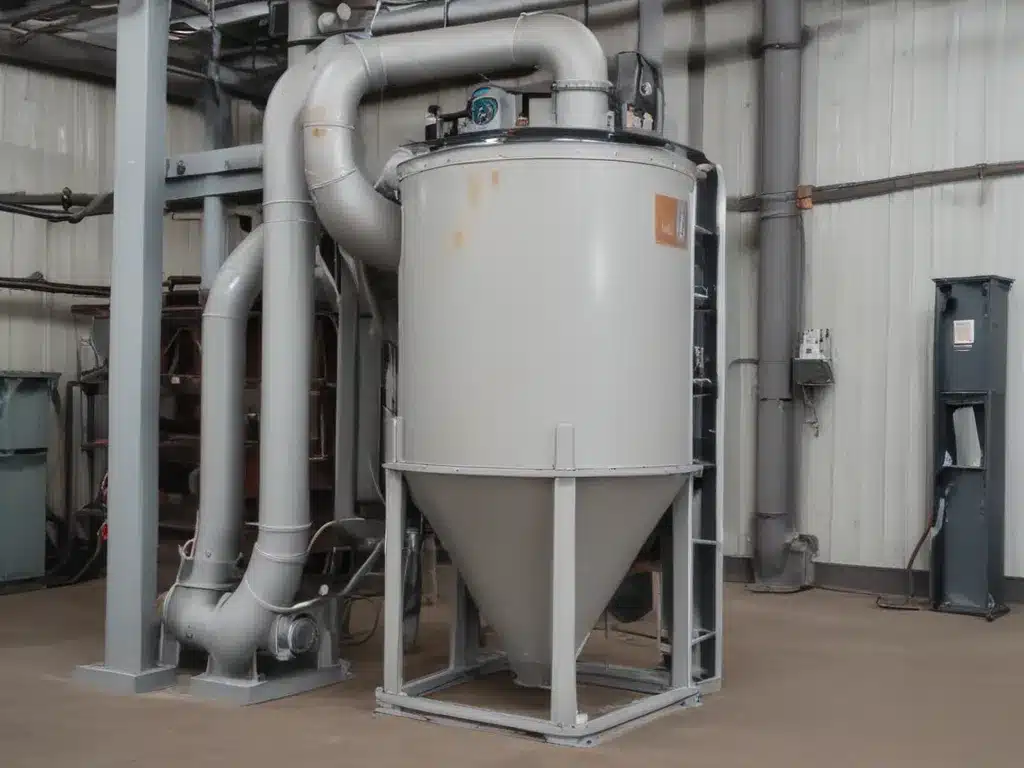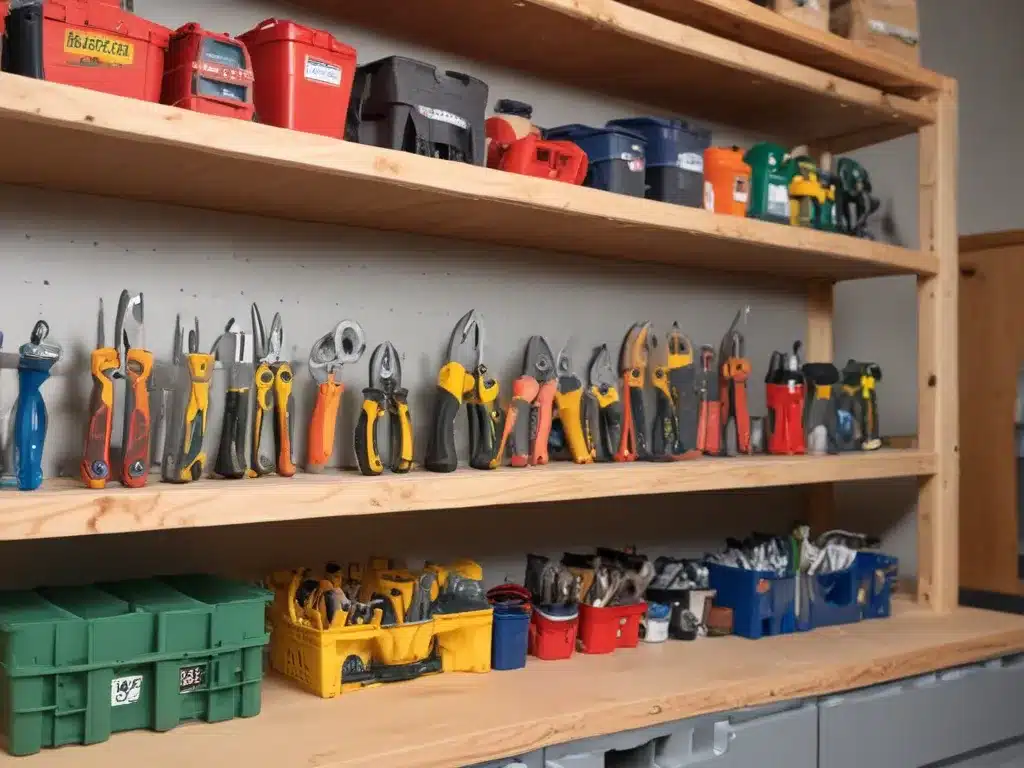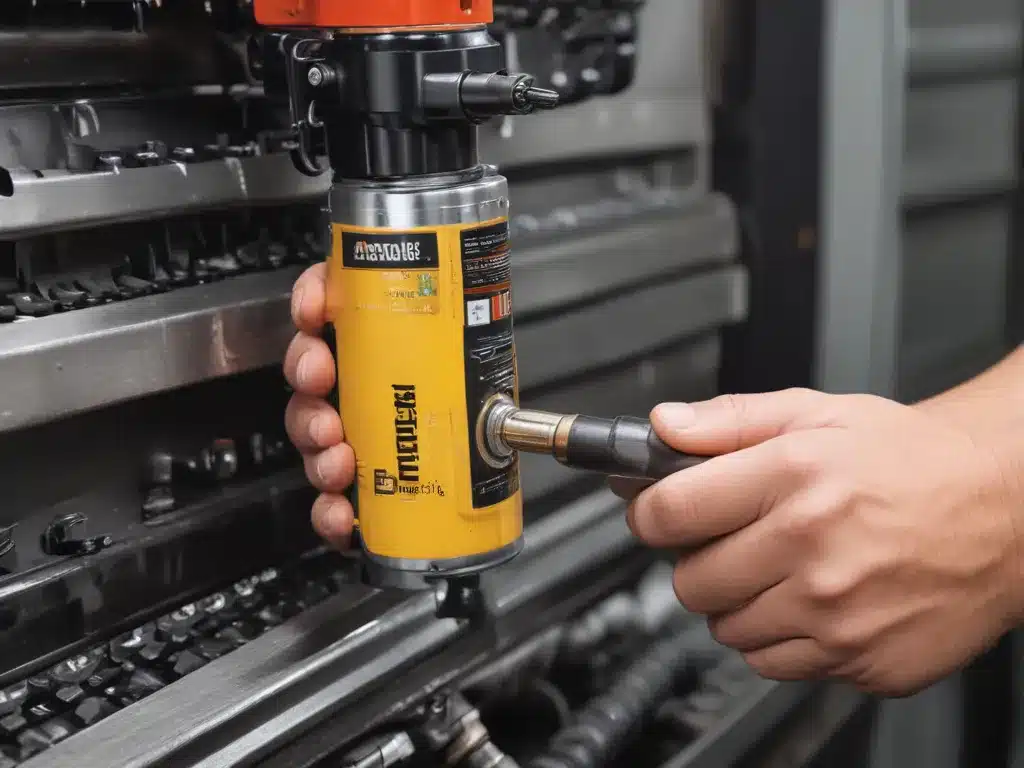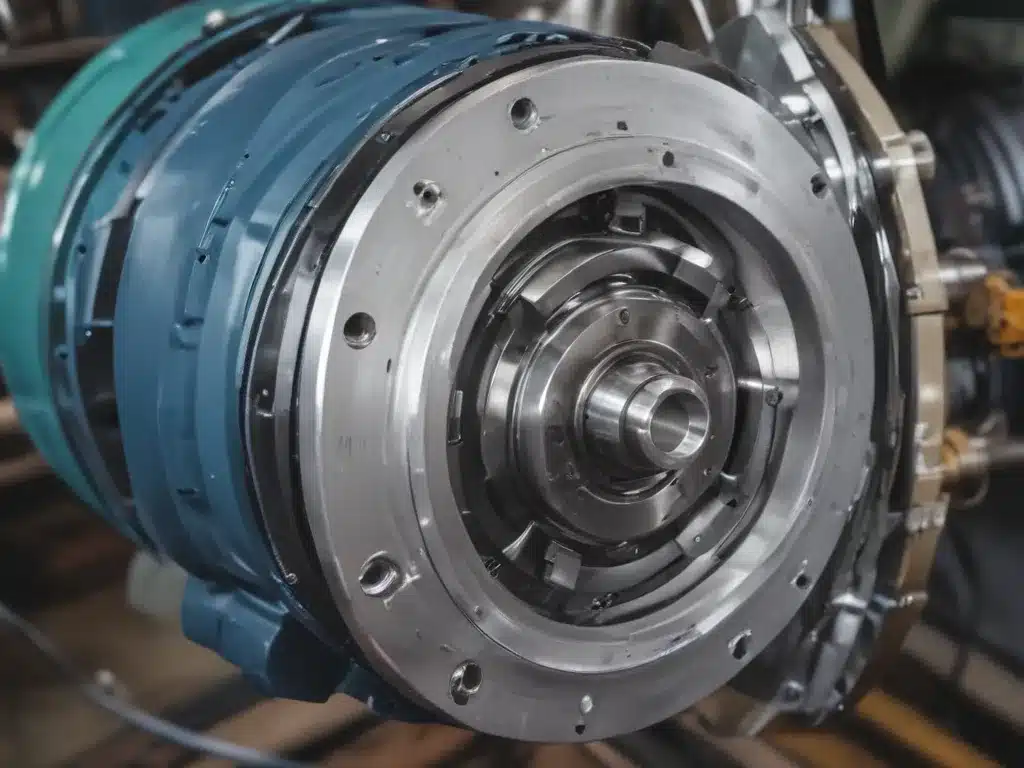The Chainsaw Conundrum: Making the Right Choice
As a seasoned DIYer and outdoor enthusiast, I’ve had my fair share of experiences with chainsaws. Whether it’s tackling a downed tree, pruning overgrown branches, or sprucing up the property, these power tools have become an indispensable part of my toolkit. But with so many options on the market, from gas-powered beasts to their sleek, silent electric counterparts, the decision of which chainsaw to choose can be a real head-scratcher.
That’s why I’m here to share my insights and guide you through the perplexing world of chainsaws. Buckle up, because we’re about to embark on a journey that will have you cutting through the confusion and emerging as a confident, chainsaw-wielding pro. Get ready to ditch those pesky tree stumps and bring your outdoor projects to new heights.
Gas-Powered Chainsaws: The Muscle Behind the Mayhem
Let’s start with the traditional workhorse of the chainsaw world – the gas-powered model. These bad boys are the ultimate in raw power, capable of tackling even the most stubborn hardwoods with ease. I remember the first time I got my hands on a gas chainsaw; it was like taming a wild beast. The rumble of the engine, the dance of the chain, and the satisfying thump as it sliced through thick logs – it was enough to make my adrenaline spike.
One of the biggest advantages of gas-powered chainsaws is their sheer brute force. These machines are built to handle the toughest jobs, from felling massive trees to clearing out dense brush. The combustion engine provides an almost limitless supply of torque, allowing you to power through even the gnarliest of wood fibers. And trust me, there’s nothing quite like the feeling of watching a massive tree slowly topple to the ground, all thanks to the relentless power of your trusty gas chainsaw.
But with great power comes great responsibility, and gas-powered chainsaws do have their fair share of drawbacks. For one, they can be a real pain to start, especially in colder weather. That ripcord can feel like you’re doing a full-body workout sometimes. And let’s not forget the never-ending dance of mixing the perfect fuel-oil ratio – one wrong move and you might as well be throwing your money into the fire.
Another downside is the noise. These machines can be as loud as a jet engine, which can be a real issue if you’re working in a residential area or simply value your hearing health. And then there’s the issue of emissions – gas-powered chainsaws are notorious for their polluting exhaust, which can be a concern for eco-conscious users.
Electric Chainsaws: The Silent, Eco-Friendly Saviors
Now, let’s shift gears and explore the electric chainsaw revolution. These sleek, modern machines have been steadily gaining popularity, and for good reason. Gone are the days of the roaring gas-powered behemoths; electric chainsaws offer a quieter, cleaner, and more user-friendly alternative.
One of the most appealing aspects of electric chainsaws is their environmental friendliness. These babies don’t produce any direct emissions, making them a much more eco-conscious choice for those who care about their carbon footprint. And with the constant advancements in battery technology, electric chainsaws are becoming increasingly powerful and capable of handling larger tasks.
But the real beauty of electric chainsaws lies in their convenience. They’re incredibly easy to start – just a simple push of a button and you’re good to go. No more yanking on that ripcord until your arms feel like they’re about to fall off. And the lack of a gas-and-oil mixture means you don’t have to worry about messy fuel spills or the hassle of maintaining the perfect blend.
Another major advantage of electric chainsaws is their noise level (or lack thereof). These silent workhorses operate at a fraction of the decibel level of their gas-powered counterparts, making them a much more pleasant option for use in residential areas or sensitive environments. You can practically have a conversation while using an electric chainsaw, something that’s virtually impossible with a gas model.
Of course, electric chainsaws do have their own set of drawbacks. The most obvious one is the limited runtime. Depending on the battery capacity, you may only get 30-60 minutes of continuous use before needing to recharge. This can be a real issue if you’re tackling a large project or working in remote areas without access to power. And while the battery technology is constantly improving, electric chainsaws still tend to be less powerful than their gas-powered siblings, at least for now.
Factors to Consider: Weighing the Pros and Cons
Now that we’ve explored the key differences between gas and electric chainsaws, let’s dive deeper into the factors you should consider when making your purchase decision. After all, choosing the right chainsaw can mean the difference between a smooth, efficient project and a frustrating, time-consuming mess.
Power and Performance
When it comes to raw power, gas-powered chainsaws reign supreme. Their combustion engines can generate significantly more torque and horsepower, allowing them to tackle even the toughest, most stubborn wood with ease. Electric chainsaws, while steadily improving, still tend to lag behind in terms of pure cutting power.
However, it’s important to note that power isn’t everything. Electric chainsaws have become increasingly capable, and many models can now handle a wide range of tasks, from pruning to light tree felling. The key is to match the chainsaw’s power to the specific needs of your project.
Runtime and Portability
As mentioned earlier, the runtime of electric chainsaws is a significant factor to consider. If you’re working on a large-scale project or in a remote location, the limited battery life of an electric model may be a dealbreaker. Gas-powered chainsaws, on the other hand, can run for as long as you have fuel, making them the better choice for extended or off-grid use.
But portability is another story. Electric chainsaws are generally much lighter and more maneuverable than their gas-powered counterparts, which can be a real advantage when working in tight spaces or navigating through dense foliage. The lack of a bulky gas tank and engine also makes them easier to transport and store.
Noise and Emissions
If noise and environmental impact are top priorities for you, then electric chainsaws are the clear winner. These silent workhorses operate at a fraction of the decibel level of gas-powered models, making them a much more user-friendly and eco-conscious choice. The lack of exhaust emissions is also a major bonus for those who value sustainability.
Gas-powered chainsaws, on the other hand, can be as loud as a jet engine, which can be a real issue if you’re working in a residential area or simply value your hearing health. And their polluting exhaust can be a concern for eco-conscious users.
Maintenance and Ease of Use
When it comes to maintenance, electric chainsaws generally have the advantage. With no need to mix fuel and oil, and fewer moving parts, they require less upkeep and are typically easier to maintain. Simply charge the battery, sharpen the chain, and you’re good to go.
Gas-powered chainsaws, on the other hand, can be a real headache to maintain. From the constant battle of finding the perfect fuel-oil ratio to ensuring the engine is properly tuned, there’s a lot more that can go wrong. And let’s not forget about that ripcord – pulling it until your arms feel like they’re about to fall off can be a real workout in and of itself.
Making the Final Decision: Choosing the Right Chainsaw for You
So, now that we’ve explored the pros and cons of gas and electric chainsaws, the big question remains: which one is right for you? The answer, as with most things in life, is “it depends.”
If you’re tackling large-scale projects, working in remote areas, or need maximum cutting power, then a gas-powered chainsaw may be the way to go. The raw power and extended runtime make them the ideal choice for taking down big trees, clearing dense brush, or powering through stubborn hardwoods.
On the other hand, if you value convenience, noise reduction, and environmental impact, then an electric chainsaw might be the better fit. These silent, eco-friendly workhorses are perfect for homeowners, small-scale projects, or anyone who wants to maintain their property without the hassle and headache of a gas-powered machine.
Ultimately, the decision boils down to your specific needs, budget, and personal preferences. But no matter which route you choose, one thing is certain: a quality chainsaw, whether gas or electric, can be a game-changer for your outdoor projects and DIY adventures. So, what are you waiting for? It’s time to get out there and start carving your own path to success!


























